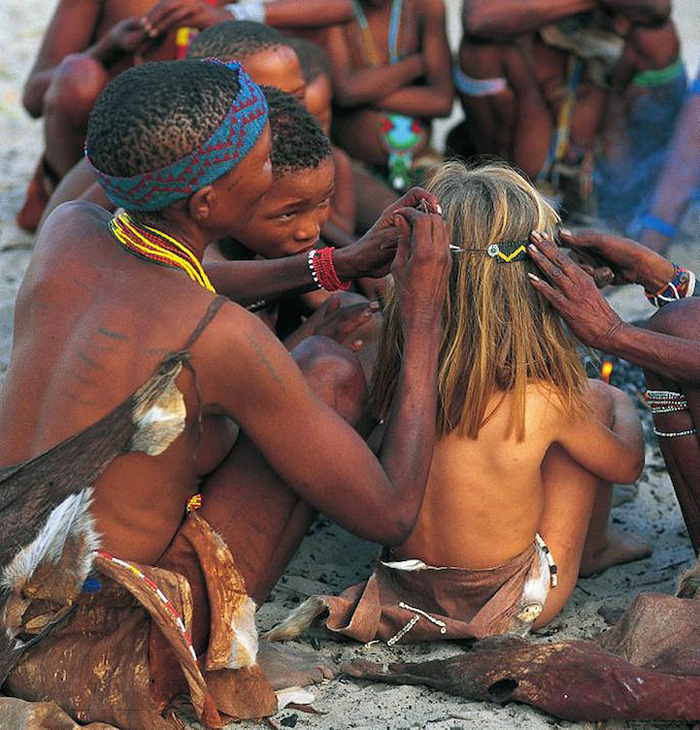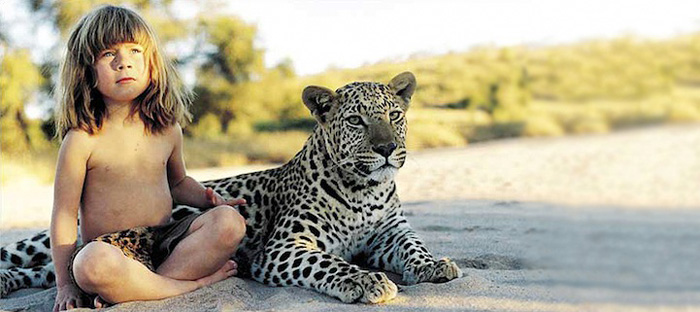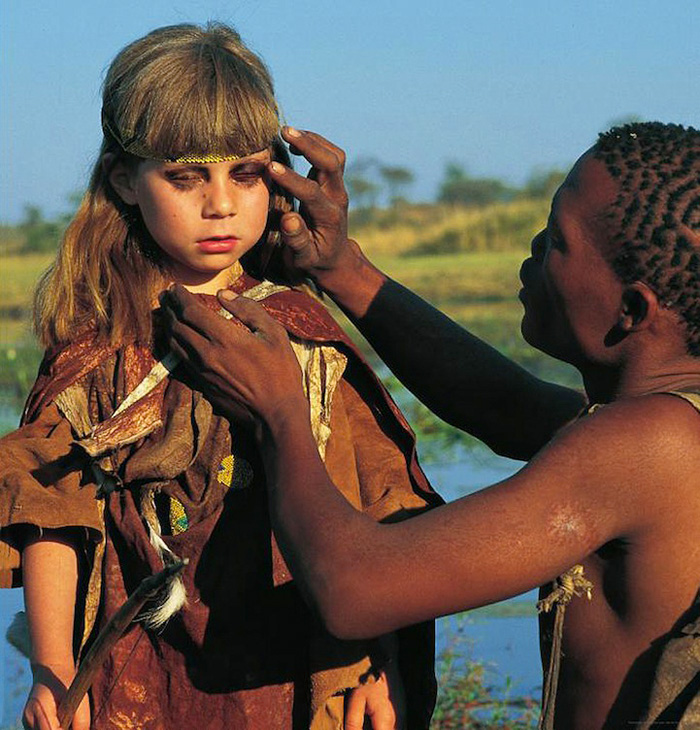Tippi Degré: Daughter of Namibia, Best Friend To Animals, Desired By The World
/These childhood images of Tippi Degré, born in 1990 the newly-independent Namibia to French parents, documentary film makers and wildlife photographers Alain Degré and Sylvie Robert, are extraordinary in their intimacy. Named after Tippi Hedren, the young girl Tippi Benjamine Okanti Degré grew up in the company of an elephant named Abu and a dizzying array of big cats, snakes, a baby zebra, an ostrich, giant bullfrogs and countless other members of her animal menagerie. It’s said that Tippi persuaded giraffes to come down to her level.
Ten years later, Tippi moved to Paris with her mother, where she told the Sydney Morning Herald in 2002 ‘I miss Africa — that’s my home.’ The family also spent time in Madagascar.
Her best friend, she tells me, was a leopard nicknamed J&B. It had been adopted by a desert farmer after its mother had died in a trap and, Ms Robert says, was ‘mild as a household cat when Tippi was around, but never lost its killer instinct’. When it attacked another child, the little girl marched right up to the animal, gave it a sharp slap on the nose and told it to ‘Stop that,’ at which it ran away.
Tippi also befriended the bushmen and Himba tribespeople of the Kalahari, who taught her how to survive on roots and berries and to speak their language.
Before she became a university student and aspiring filmmaker at La Sorbonne Nouvelle University in Paris, Tippi was part of six nature documentaries for the Discovery Channel and also a book. Her mother Sylvie Robert says that Tippi’s childhood was ‘a wonderful experience’, even with her demanding filming schedule. ‘She was really at home, because at heart she is a little African.’
As a young teenager, Tippi took issue with this description of her life.
No, Maman, it’s not true that I loved it. It was great to see the elephants and the lions, but it would have been better if it hadn’t always been in front of the camera. It was hard work, it was difficult, it was hot and I was not happy all the time. I was worn out at the end of it.
‘The reason I did the film and will do more is to show that we have to do something about saving the animals and the planet before it’s too late . . . I don’t want to be famous. I just want to be normal.’
Tippi’s parents have come under criticism for encouraging her and filming her in such close proximity to the animals. Her mother explained to the Telegraph UK:
‘Farmers often keep orphan animals and raise them in their house,’ her mother said. ‘Sometimes they are tame or used to humans and so this is how Tippi was able to be so close with them.’
‘If I had the least fear I would not have let Tippi anywhere near them. She was only ever bitten once and that was on the nose by a Meerkat.’
As Tippi moves into adulthood, she is defined by these incredible images, touching a nerve in the spirit of all of us who love Africa, its spirit, its people and wildlife. Her desire to not be famous reminds me of the mindset of Laura Dekker, the young woman who sailed around the world alone, setting off when she was 14 to achieve a world record.
For both young women, anonymity may not be possible. They possess an inner wisdom and sensitivity to nature that we thirst for in our rapidly changing, technocratic world. ~ Anne
via
















